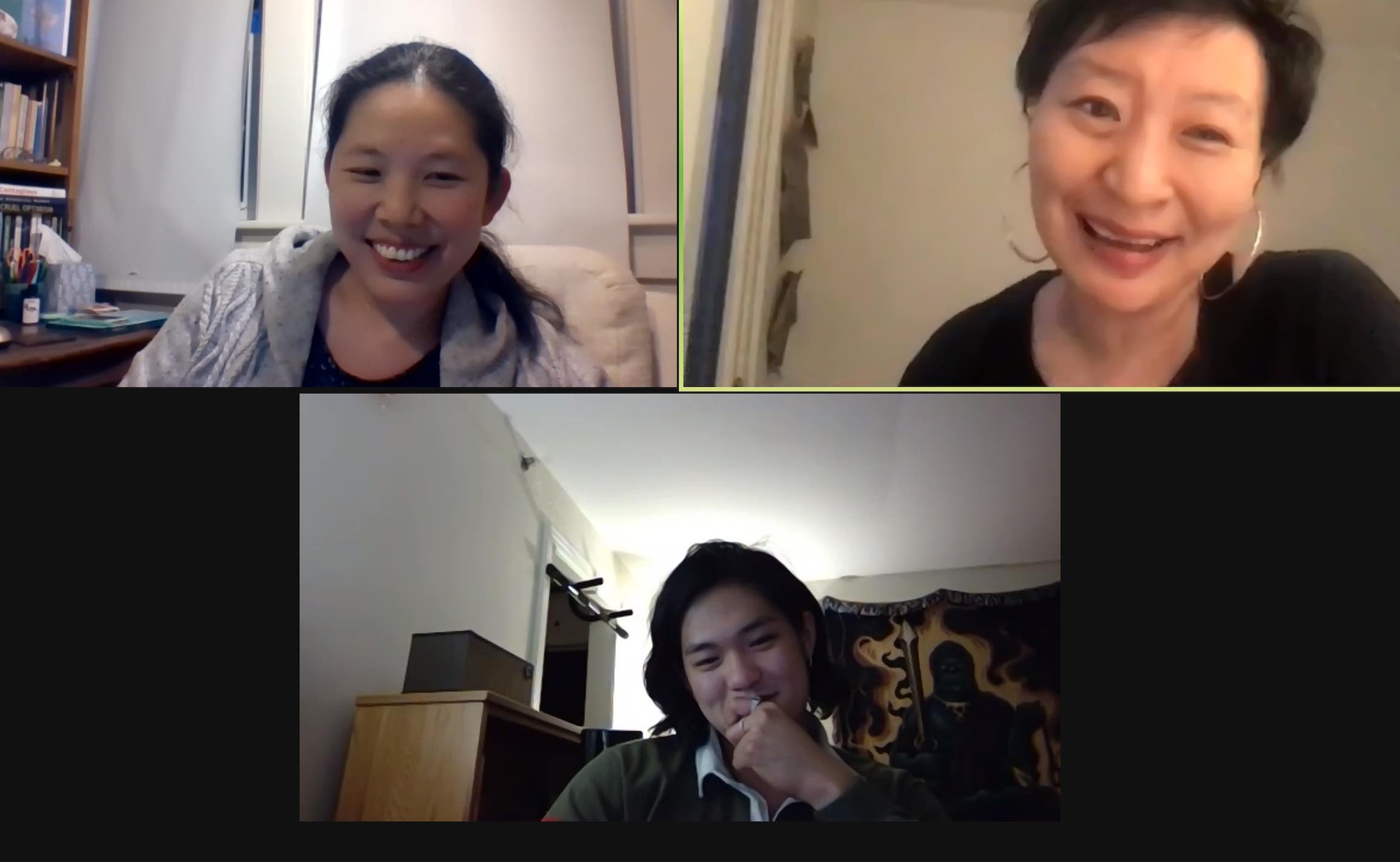Cathy Park Hong explores Asian American identity and activism in book lecture
April 29, 2021
 Lucas Dufalla
Lucas DufallaOn Wednesday evening, as a part of the Alpha Delta Phi Visiting Writers Series, author and poet Cathy Park Hong visited Bowdoin virtually to discuss her most recent book, “Minor Feelings: An Asian American Reckoning.” The talk was hosted by Kevin Chi ’21, president of the Bowdoin Asian Students Alliance, and moderated by John F. and Dorothy H. Magee Associate Professor of Asian Studies and English Belinda Kong.
Hong, whose work recently won the National Book Critics Circle Award for Autobiography, began her talk by citing the reasons she began writing “Minor Feelings.” Many of Hong’s previous works center around themes of racial identity, but Hong wanted “Minor Feelings” to directly and specifically address her experience as an Asian American—a decision that Hong partially attributes to the birth of her daughter.
“Becoming a mother made me feel even more rooted in America and more fixed within my demographic,” Hong said during her lecture. “It gave me more of a moral imperative to write this book.”
Hong then discussed the internal and external challenges she faced while writing her autobiography, including distinguishing between how she identifies herself and how others outside of the Asian American community might identify her. Hong grew up in a household that primarily identified as Korean, and used “Minor Feelings” as an opportunity to solidify her personal feelings about identifying as Asian American.
“I feel more comfortable saying I’m Korean American than saying that I’m an Asian American,” Hong said. “The term ‘Asian American’ was always something that was applied to me.”
The autobiographical work is not just about Hong’s reckoning with being Asian American but also the Asian American experience in the United States more generally. Hong believes that it is necessary to shed light on the daily microaggressions and racism that Asian Americans experience in their daily lives while living in the United States. The book details several of Hong’s personal experiences with racism, including one instance in which she was confronted by a man and derided with racial slurs while leaving a restaurant.
“I can’t tell you why certain memories are more compelling to me to write about,” Hong said. “I just feel the need to write them down.”
When Hong went to college, she found that many of her classmates also distanced themselves from their Asian American identity, which, she argues, only made the racism they experienced more invisible to onlookers. Even when looking to publish her book, some of the editors she approached believed a book about the Asian American experience would be too niche for a general audience.
“If this book is about this country from an Asian American perspective, why should it have a lesser reach than someone who is a white Protestant from Indiana?” Hong said. “What’s that about?”
Hong also discussed her book in relation to the recent attacks against Asian Americans across the United States. Hong noted that, following the shooting in Atlanta, she observed a change in discussions of anti-Asian racism across the country, and that this began to highlight the severity and prevalence of these hate crimes for the American public.
“The American public, in general, doesn’t really pay attention to you unless there’s blood on the ground,” Hong said.
However, Hong believes that to effectively combat anti-Asian racism, the Asian American community must continue to make their voices heard.
“It’s up to other Asian Americans to take up that space and to be as pushy and forceful as possible,” Hong said. “Make sure that that attention is sustained, not just on us and our experiences as victims, but also on the other injustices of living in this country.”
Hong ended her talk by emphasizing that all stories about the Asian American experience in the United States are relevant and valuable.
“It doesn’t matter what the story is,” Hong said. “It’s always how you tell the story—it doesn’t matter how many times the story has been told.”

Comments
Before submitting a comment, please review our comment policy. Some key points from the policy: